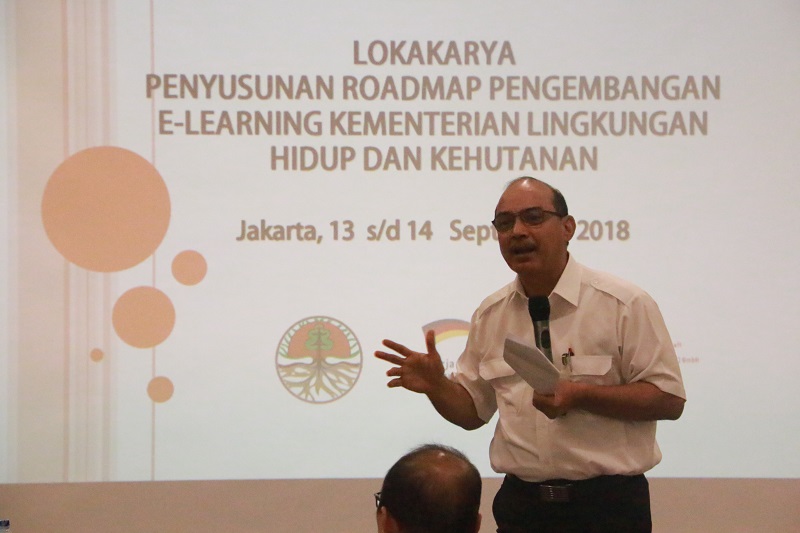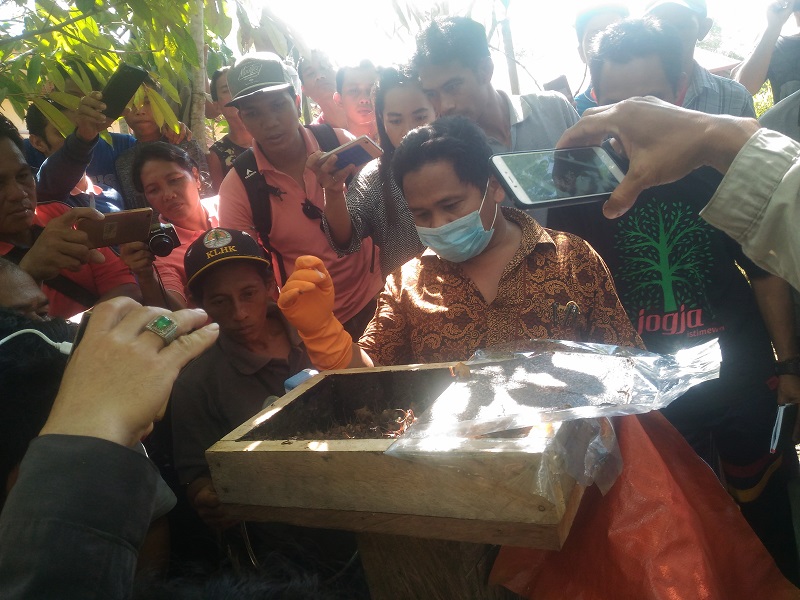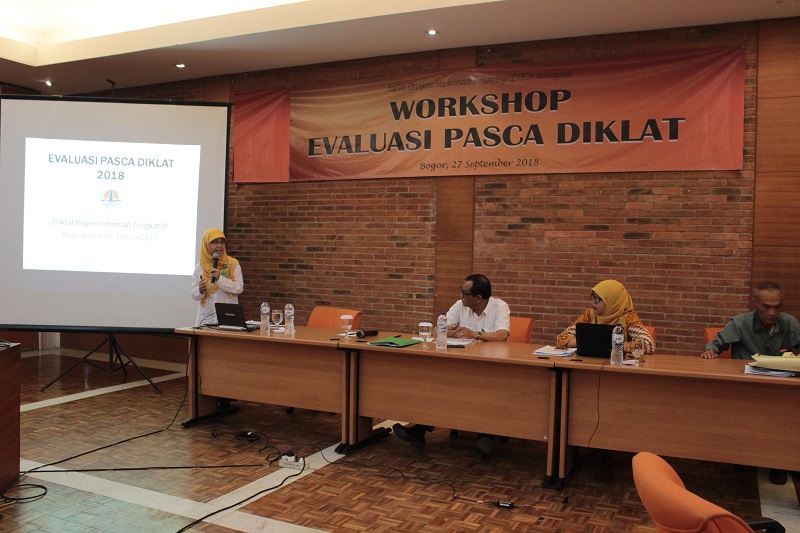FORCLIME
Forests and Climate Change ProgrammeTechnical Cooperation (TC Module)

Select your language

Aiming to prepare the eLearning development roadmap of the Ministry of Environment and Forestry (KLHK) 2019-2024, the Center for Education and Human Resources for Environment and Forestry (Diklat SDM KLHK), in collaboration with GIZ and the World Bank Forest Investment Program (FIP) conducted a workshop on the 13th – 14th September in Jakarta. The roadmap will be used as a reference for the development of e-learning in the next five years. The workshop was attended by 50 participants from various technical directorates of KLHK, the Institute of State Administration (LAN), the Financial Education and Training Agency and international institutions/projects.
In his remarks, the Head of the Human Resources Planning and Development Agency (BP2SDM) of the Ministry of Environment and Forestry said that human resources were increasing, and their distribution was widespread all over Indonesia. They need capacity building to improve their work performance. However, budget for capacity building is limited for the implementation of classical training. Therefore, e-learning education and training becomes one option to meet the needs of capacity development regarding human resources. The development of e-learning which was initiated in 2014 by the Training Center LHK in collaboration with GIZ and AIZ, is expected to move forward substantially in the future.
During the workshop, participants discussed priority trainings which will use e-learning, supporting policies and regulations that need to be prepared, strategies to mainstream e-learning into the Echelon 1, identifying facilities needed for HR development and testing competency of e-learning participants.
For more complete information, please contact:
Edy Marbyanto, Strategic Area Manager, Human Capacity Developmen

As an encouragement and to enhance the use of non-timber forest products training activities were carried out in collaboration with FORCLIME FC (German financial cooperation program) providing extensive information on beekeeping issues. The training was conducted on September 8 in Selaup Village, Kapuas Hulu targeting 12 local communities among them Menua Sadap Village. Thus preparatory technical support was given to the relevant groups prior to receiving FC- investment funds for installation and improvement of beekeeping facilities and starting further activities in the villages.
Among the trainees were 32 representatives of groups keeping bees belonging to trigona genus, two participants from the local planning agency (BAPPEDA) of Kapuas Hulu and six village officials of Ulak Pauk village. These village officials joined in the training on their own initiative to learn about kelulut, as the stingless bee species are called in Indonesian language.
Arranged by GIZ resource persons from the beekeeping group of Selaup Village shared their knowledge. Training materials were circulated referring to different types of bees, how to construct and maintain bee hives, the transfer of colonies to the boxes as well as harvesting and marketing of honey. Besides theoretical inputs, the participants also obtained practical experiences. All necessary materials were provided locally by the group from Selaup Village.
For more details, please contact:
Petrus Derani, Technical Advisor for Community Based Forest Management (CBFM)
Lutz Hofheinz, Strategic Area Manager, Forest Management Unit development

The Human Resource Training Center of the Ministry of Environment and Forestry in collaboration with GIZ conducted a workshop on Post-Training Evaluation on September 27 in Bogor. The training aimed to review the results of post-training evaluation and its methods. 50 participants representing Echelon 1 units of the Ministry of Environment and Forestry are attended.
During the workshop, participants exercised using case study of the Level III Leadership Training. The alumni of the Leadership Training, beside their superiors, colleagues and staff were interviewed to gather information regarding the progress of the Change Project implementation. The Change Project is an innovative action plan that will be carried out by participants in the Leadership Training after completing the training and returning to their duty station.
After the above exercise, participants obtained some findings, such as: (1) Project Changes compiled by alumni are useful to improve work effectiveness and efficiency; (2) Superior and funding supports play an important role in successful implementation of the Change Project; (3) The transfer of employees is one of the threats that can hinder the implementation of the planned Project Changes; (4) For more effective training, the leadership training curriculum needs to be improved.
For more information, please contact:
Edy Marbyanto, Strategic Area Manager, Human Capacity Development
 |
Supported By: |
  |